Iran's Raisi Reportedly Cancels Iftar Dinner After Guests Refuse To Attend
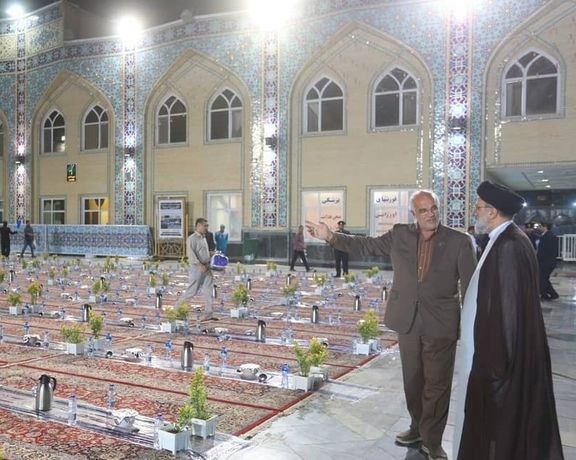
Some Iranian media report that an Iftar dinner by Iranian president Ebrahim Raisi was cancelled after most invited guests who were artists declined to attend.

Some Iranian media report that an Iftar dinner by Iranian president Ebrahim Raisi was cancelled after most invited guests who were artists declined to attend.
Sharq newspaper and others reported Saturday that the Ramadan dinner, or Iftar, scheduled for Friday was cancelled after “99 percent” of artists, actors and film industry personalities declined invitations using various excuses, such as the Covid pandemic, travel or other reasons.
The government’s official news website IRNA strongly denied the reports as “complete fabrication”, insisting that the Iftar was cancelled due to high air pollution in Tehran. IRNA added that the dinner was supposed to be served in an open courtyard of the presidential complex but due to pollution it was decided to hold indoors, but the space was too small for accommodating 170 guests.
Sharq, however, emphasized that the real reason for the cancellation was the refusal of most invitees to attend.
The Iftar invitation by the president for artists and cinema figures has become an annual tradition in recent years. In 2018, many declined the invitation by then-president Hassan Rouhani, saying that he had not fulfilled his election promises.
Raisi’s leadership is being sharply criticized in the media, as Iran’s economic conditions deteriorate, and food prices continue to rise. Reports say that many working class people cannot afford even bread and buy it with a promise to bakeries to pay later.
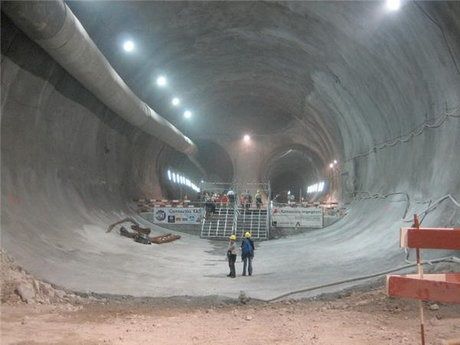
Over 20 people arrested during protests seven years ago against water scarcity and distribution policies in south-west Iran have been sentenced to prison and lashes, the United States-based Human Rights Activists' News Agency (HRANA) said Saturday.
HRANA reported that those sentenced were arrested in Chaharmahal-Bakhtiari province in 2015 during protests against plans to transfer water from their town, and were holding a symbolic mourning ceremony for the drying up of a spring.
After a complaint by Khatam-al Anbiya Construction Headquarters, the engineering and construction arm of the Revolutionary Guard, the protestors were sentenced to up to seven years in prison and 74 lashes on charges of disturbing public order and destroying public property. They denied the charges.
Chaharmahal-Bakhtiari, a traditionally water-rich region in the Zagros mountains, has seen its water resources decline due to both drought and projects to irrigate arid regions. Protests in Chaharmahal-Bakhtiari broke out again last year in response to demonstrations in Esfahan over the drying up of the Zayandeh Roud river, which rises in Chaharmahal-Bakhtiari.
Drought and desertification across the Middle East in recent years has fed tensions between and within states over water. The government’s encouragement of water-intensive industries in Yazd, east of Esfahan, diverting water, has also contributed to farmers in Chaharmahal-Bakhtiari facing shortages.
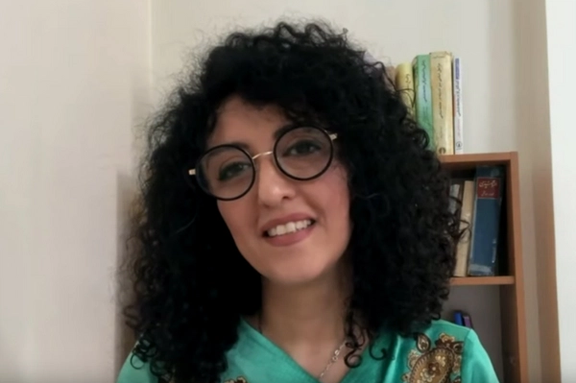
A prominent Iranian rights defender argues that sanctions should target violators of human rights in Iran, such as the Revolutionary Guards, not the people.
Speaking to Iran International TV on Friday, Narges Mohammadi said Western sanctions have failed to weaken Iran's oppressive regime but led to a "disastrous weakening of the Iranian middle class as the driving force of democracy".
The sanctions failed, she argued, because they were not "targeted" and Western politicians did not have adequate knowledge of the Islamic Republic system.
"It appears that the West lacks a proper understanding of the hypocrisy of the Islamic Republic and that it is a dictatorial government with systemic financial corruption that can use various tools [of repression]," she told Iran International.
There has been huge social media controversy over Mohammadi's views over sanctions after a Washington Post opinion article Wednesday referring to interviews with her in which she said sanctions weaken Iran’s civil society.
Critics attacked Mohammadi accusing her of defending the lifting of US sanctions, and her approach benefits the regime and the Revolutionary Guards (IRGC) which is also under US sanctions.
The controversy gained more attention among Iranians because the Washington Post article coincided with Iran’s demand from the Biden administration to remove the IRGC from its foreign terrorist list as a condition for the revival of the 2015 nuclear agreement.
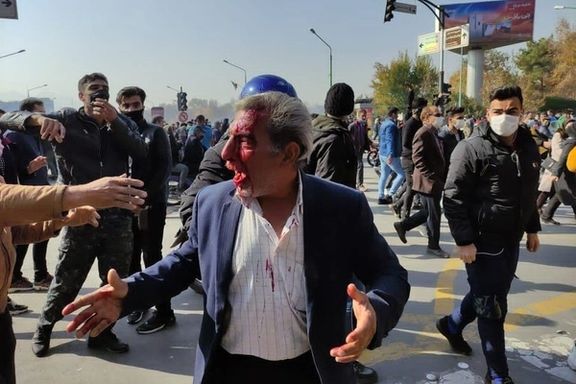
Mohammadi told Iran International that in the interview with the Washington Post she had said that she considers the IRGC as an oppressive force and a violator of human rights and that it must be targeted by the international community by various means including sanctions but not all her comments had been included in the article.
Mohammadi also explained that she believes the international community has the duty to target "any person or group" in the Islamic Republic that violates human rights to support the Iranian people and civil society and one of the ways to target the violators is using sanctions.
Mohammadi added that the IRGC's "political, terroristic, and economic investments and activities", both inside and outside the country, result in oppression of the Iranian civil society and therefore it must be placed on the list of "targeted" international sanctions along with other entities of the Islamic Republic that violate human rights such as its Judiciary and Police.
Some harshly attacked her integrity and questioned her honesty as a regime critic, while others said she should have been more careful during the interview with the author of the Washington Post opinion article, Jason Rezaian.
Mohammadi has an eight-year sentence hanging over her head for supposed “crimes against national security”, for her activities as a human rights activist and may be hauled off to prison any moment to serve it.
Cofounder and chair of the Defenders of Human Rights Center, Mohammadi has been to jail several times over the past two decades. She was freed from Evin prison in September 2020 after serving five and half years when she had no contact with her husband and children for long periods of time.
But one of Mohammadi's supporters in a tweet Thursday said she could not understand why she was criticized so strongly. "She has said that sanctions destroy the civil society. Do you doubt this statement? wrote Banafsheh Jamali, a feminist activist. "People are not going to have any demands other than economic ones when they are in dire need of food to survive," she added.
Some argue that it is difficult to put in place effective sanctions that do not lead to economic pressure on the people, and mention the example of Russia. If the government is supposed to be pressured to stop a certain behavior, it must feel economic pressure, which invariably also impacts the people.
Others say that the civil society Mohammadi refers to has not been able to reform the Islamic Republic and has been badly suppressed, so sanctions are the remaining tool to bring about a change.
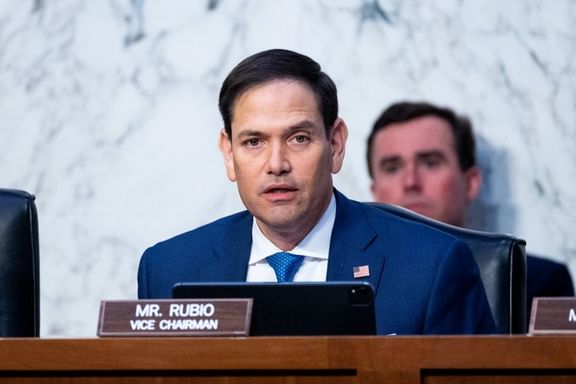
A group of US Republican senators have called on the administration to provide Israel with the military capabilities it needs to defend itself from a nuclear-armed Iran.
In a letter led by Florida Senator Marco Rubio, 11 senators told President Joe Biden that his new nuclear deal with Iran will provide the regime with a pathway to nuclear weapons and warned of major negative regional implications of a nuclear-armed Iran.
Stressing the necessity for a course-direction, they said, the new agreement “would put at risk the existence of the State of Israel and the governments of our Arab allies, destroy America’s position in the Middle East, and ultimately threaten the US homeland”.
The senators also warned of the grave threats of Iran’s ballistic missile arsenal, its support for terrorism, and other destabilizing activities in the Middle East.
“The Iranian regime arms the Houthis in Yemen with the missiles and drones that they use to attack civilian targets in Saudi Arabia and the United Arab Emirates”, they wrote, adding that “Iran equips Hezbollah and Hamas with tens of thousands of rockets”.
They also highlighted the escalation of attacks against Americans in Iraq, particularly the ballistic missile attack near the US consulate in Erbil.
Iran has demanded that its Revolutionary Guard be removed from the US list of terrorist organizations, a move that many say put Iran and Israel on a collision course.
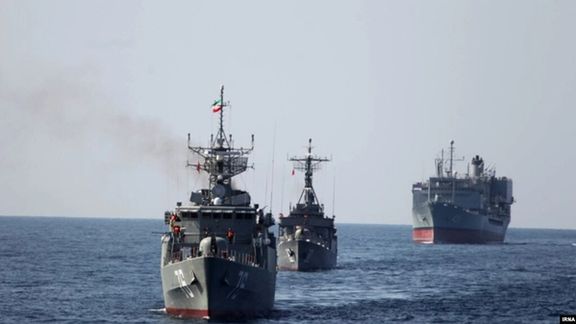
Iran has seized a “foreign vessel” in the Persian Gulf for carrying “smuggled fuel”, Fars news website close to the Revolutionary Guard (IRGC) reported Saturday.
The head of Iran’s Judiciary in Hormozgan Province on the Persian Gulf said that the IRGC naval forces had “identified” a foreign vessel carrying 220,000 liters of “smuggled fuel” and seized the unidentified vessel.
The report said 11 foreign crew members were detained until investigations are completed. There was no reference to the nationality of the tanker in question or the crew. The report also did not say where the fuel was being smuggled from and to what destination.
The news come as negotiations to revive the 2015 nuclear deal known as JCPOA are in limbo mainly due to Iran’s demand that the IRGC be removed from the United States’ list of Foreign Terrorist Organizations (FTO).
Iran has boarded and seized foreign-flagged tankers in the past. One major incident occurred in January 2021 when the IRGC seized a Korean tanker for what seemed to be Iranian pressure on Seoul to release around $7 billion of funds frozen because of US sanctions.
Iran also was behind mine attacks against foreign tankers in the summer of 2019, when the US imposed full sanctions on Tehran’s oil exports.
The US Navy in the Persian Gulf region is known to have intervened in some instances to protect tankers.
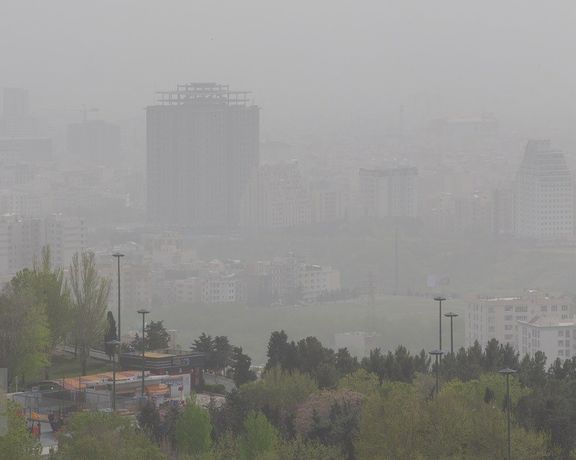
Iran’s capital Tehran on Friday had the worst air quality index in the world, according to data by IQAir -- a global air quality monitoring company.
The company’s real-time air quality index (AQI) for Tehran was 206 on Friday, putting the Iranian capital on top of the list followed by Beijing and Pakistan’s Lahore with AQIs of 182 and 173, respectively.
According to the Swiss company that specializes in protection against airborne pollutants, the index of over 200 is considered ‘Very Unhealthy’.
The air quality is not much better in other Iranian cities like Esfahan, and people have been warned against going out, as a wave of dust carrying pollutants has hit the country from neighboring Iraq.
An official from Iran’s meteorological organization, Mohammad Asghari, told state broadcaster IRIB on Friday that 26 provinces of the country will be engulfed by dust in the coming days.
Using another pollution standard, Asghari said Tehran’s air quality index was 491, which is only nine points less than the maximum level in this scale and is considered ‘Hazardous’.
Pollution in Tehran also forced authorities to cancel outdoor sport matches scheduled for Friday while schools have gone virtual again only a week after they opened following the New Year holidays and a year of Covid-19 restrictions.
Air pollution is a persistent problem in large Iranian cities, especially in cold and hot weather when more electricity is used and power stations resort to using heavy dirty diesel fuels because of natural gas shortages.